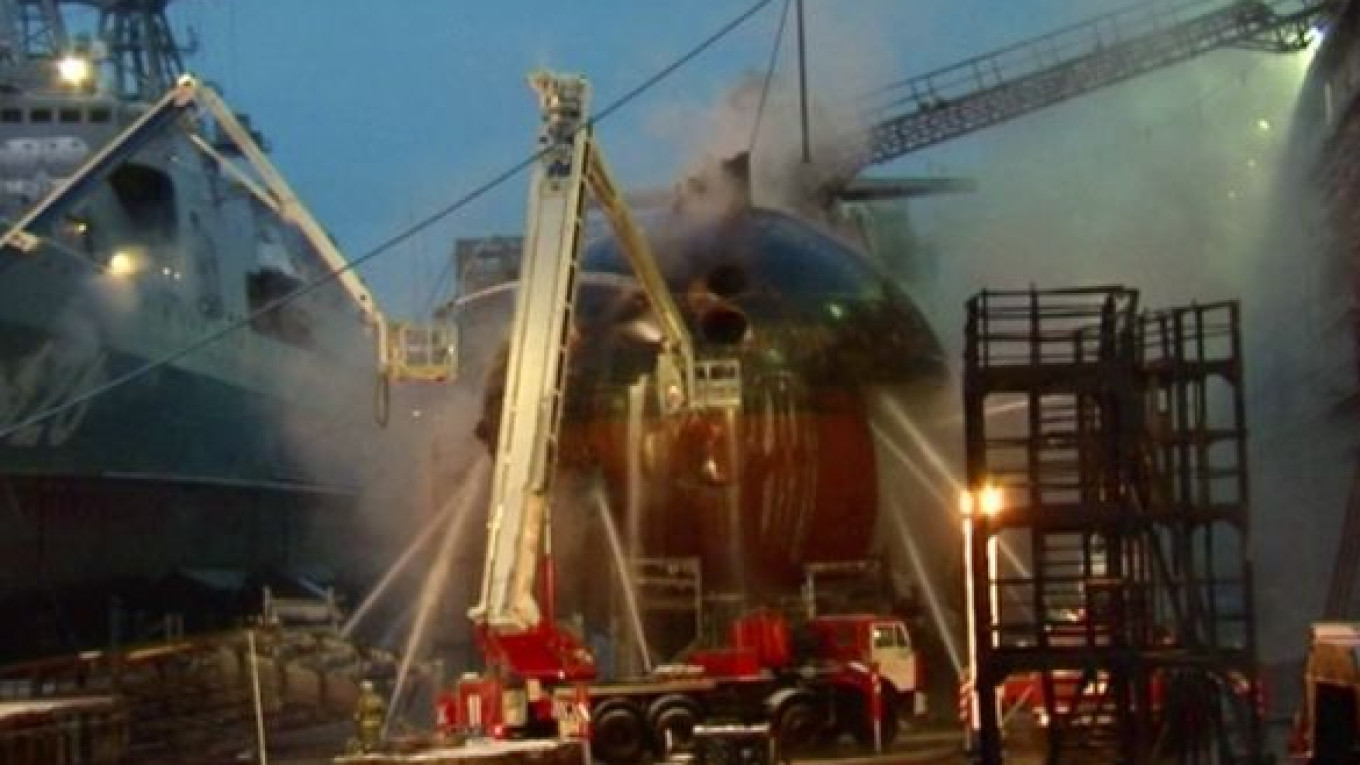Russia came close to nuclear disaster in late December when a blaze engulfed a nuclear-powered submarine carrying atomic weapons, Vlast reported Monday, contradicting official assurances that it was not armed.
Officials said at the time that all nuclear weapons aboard the Yekaterinburg nuclear submarine had been unloaded well before a fire engulfed the 167-meter vessel and that there had been no risk of a radiation leak.
But the magazine quoted several Navy sources as saying that throughout the Dec. 29 fire the submarine was carrying 16 R-29 intercontinental ballistic missiles, each armed with four nuclear warheads.
"Russia, for a day, was on the brink of the biggest catastrophe since the time of Chernobyl," Vlast reported.
The 1986 disaster in modern-day Ukraine is regarded as the world's worst nuclear accident.
Neither the Defense Ministry nor the office of Deputy Prime Minister Dmitry Rogozin, who has responsibility for military matters, would immediately comment on the report.
The fire started when welding sparks ignited wooden scaffolding around the 18,200-ton submarine at the Roslyakovo docks, one of the main shipyards used by the northern fleet.
The rubber covering of the submarine then caught fire, sending flames and black smoke 10 meters above the stricken vessel. Firemen battled the blaze for a day and a night before partially sinking the submarine to douse the flames, according to media reports.
Vlast reported that immediately after the fire the Yekaterinburg sailed to the Navy's weapons store, an unusual trip for a damaged submarine supposedly carrying no weapons. That cast doubt on assurances that it was not armed.
"K-84 was in dock with rockets and torpedoes on board," the magazine said, adding that apart from the nuclear weapons, the submarine was carrying torpedoes and mines as well as its two nuclear reactors.
The magazine said that if one of the torpedoes had exploded, it could have threatened the nuclear missiles, leading to an extremely dangerous nuclear accident.
Media reports of what happened at the time of the fire were contradictory, and foreign journalists were unable to gain access to the high-security zone.
A Message from The Moscow Times:
Dear readers,
We are facing unprecedented challenges. Russia's Prosecutor General's Office has designated The Moscow Times as an "undesirable" organization, criminalizing our work and putting our staff at risk of prosecution. This follows our earlier unjust labeling as a "foreign agent."
These actions are direct attempts to silence independent journalism in Russia. The authorities claim our work "discredits the decisions of the Russian leadership." We see things differently: we strive to provide accurate, unbiased reporting on Russia.
We, the journalists of The Moscow Times, refuse to be silenced. But to continue our work, we need your help.
Your support, no matter how small, makes a world of difference. If you can, please support us monthly starting from just $2. It's quick to set up, and every contribution makes a significant impact.
By supporting The Moscow Times, you're defending open, independent journalism in the face of repression. Thank you for standing with us.
Remind me later.


